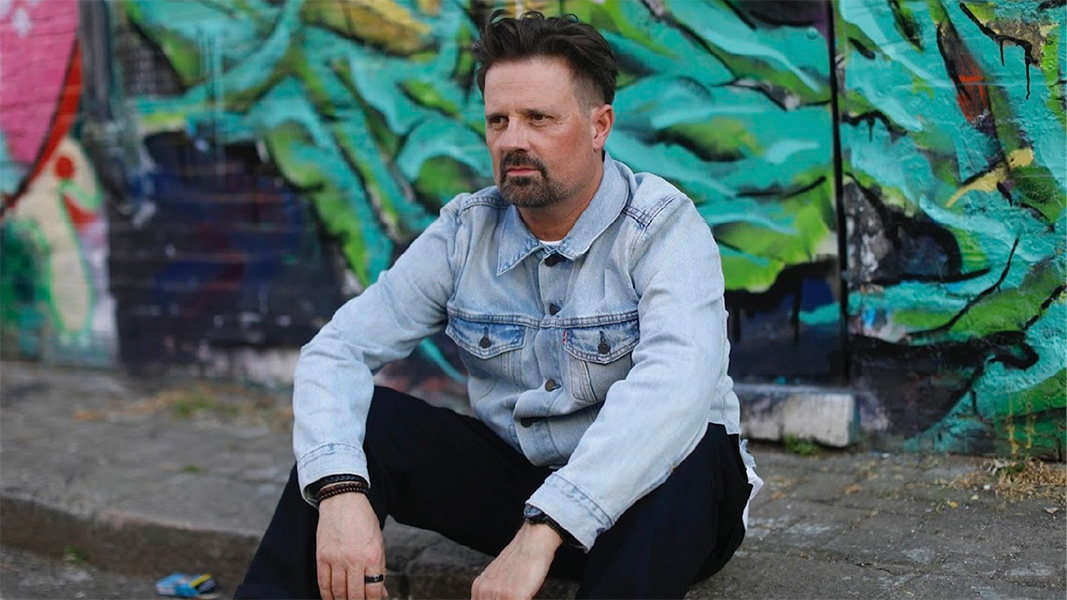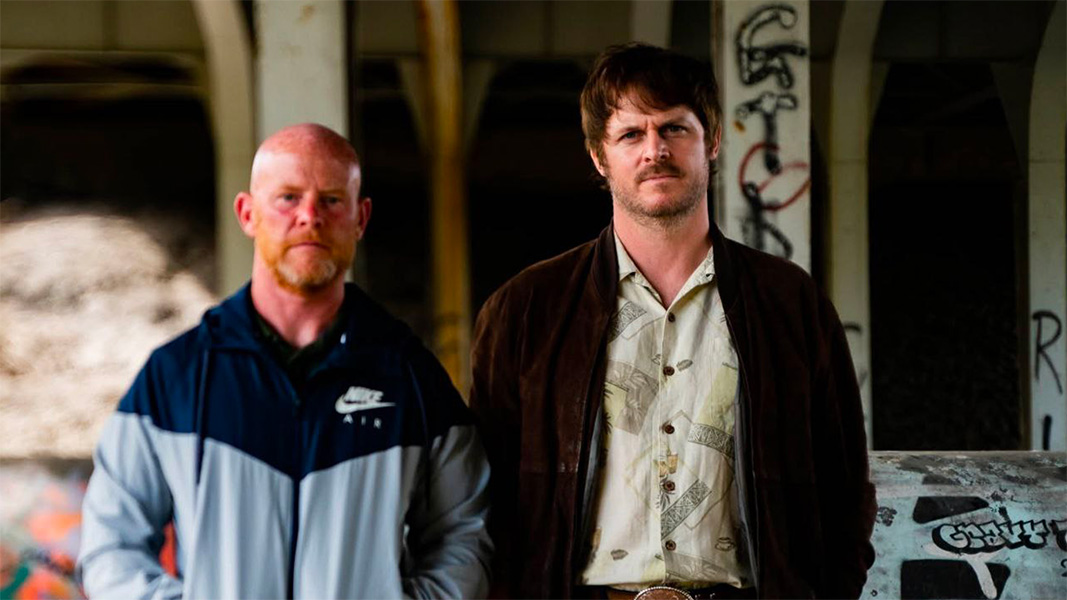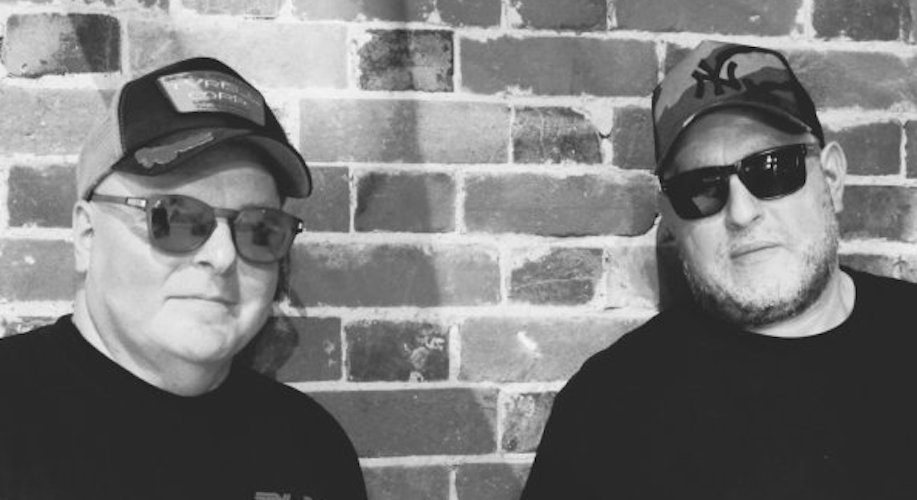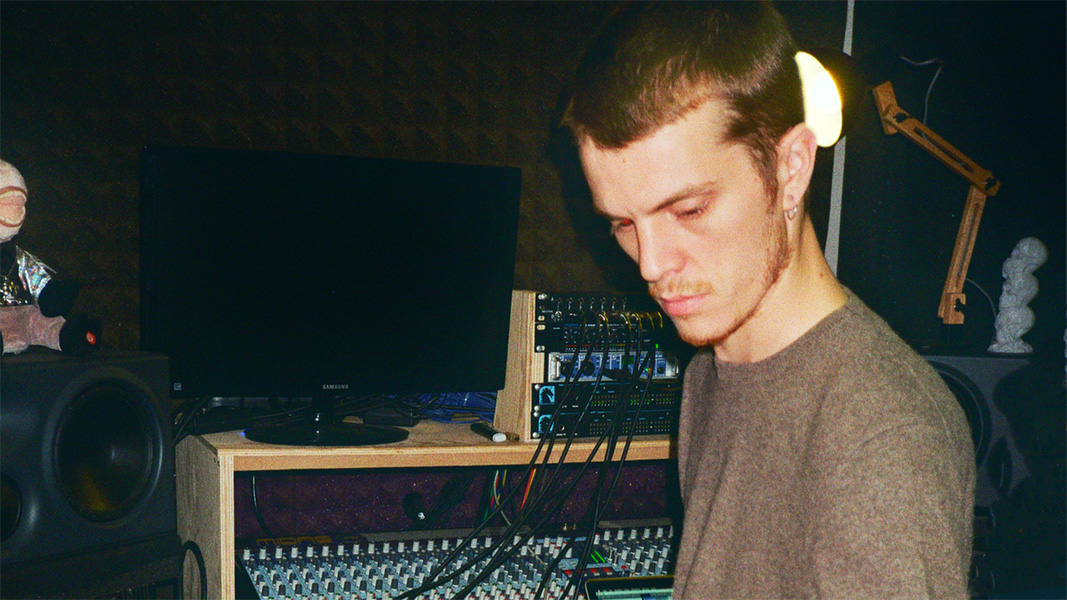Dachshund began his music love affair twenty years ago, experimenting with the sounds of dub, jungle and drum & bass before becoming enveloped by the house and techno scene. With a style that focuses on the human presence behind the machines, his approach embraces a real sense of creative freedom, something that is expressed on his co-owned label, Clapper, his numerous released on such labels as Rebellion, Gruuv, Bar 25 music, 8Bit, Upon You and Rejected, and throughout his performances in some of the world’s renowned clubs.
His debut EP for Poker Flat, Division, is quality through and through, with all three tracks delivering the uniquely spellbinding goods.
WWD: You started out making dub and drum & bass before moving to more 4/4 structures sounds, why did you make this switch?
Dub music is my first love and that’s the reason I started to compose music. I was playing guitar in reggae bands and learning how to compose and make a Dub mix, this is my roots. My interest for Drum’n bass came few years later. I was impressed by the energy and the innovation of this style. I started to play it as a Dj and was including my own production in the mix. The process was quite long but fun as we had to cut dub plates to do it. It was before the CD players in clubs. At that time I was going out to many parties of all kind of styles of music, so I’ve also been enjoying the house and techno club scene listening to 4/4 beats. I remember one track that blew me away when I heard it the first time: Decompression from Mathew Johnson. For me it was the connection between the Drum’n’Bass and the 4/4 beats. From there, making the switch took me some time – it was a slow move.
Maybe the reason of the switch was because I was getting older, and the drum’n’bass tempo was too fast 🙂 After many years into drum’n’bass, I felt like I had much more to discover with house and techno music.
WWD: How do you think those early musical experiments affected your production style, if at all?
Some tracks were clearly influenced by my early experiments with dub. For example: if I’m using some kind of reggae skank, the intention is clear. It also can be the gear I’m using that add this touch, like the Roland Space Echo RE-201 or the abuse of delay effect. But I’m not always conscious about the way it affects my production, and influences come from everywhere. Some people told me that I have a kind of recognizable sound that comes maybe from the colour of the mix or the type of sounds I’m using.
WWD: A lot has changed in the 20+ years you’ve been involved in the music industry, but what has been the single biggest change for the positive that you’ve seen?
The digitalization is the major change for me in all ways. It’s the game changer with its good and bad side.
There are a few example of the positive side are in music production: now you don’t need necessarily an expensive recording studio to create. You can do amazing things with just a laptop and a headphone. It doesn’t replace the creativity and knowledge and it doesn’t mean that it’s an easy process. But at least it opens the possibilities for more people to express themselves into music for a lower cost.
Another improvement if you choose digital format is that you don’t need to carry heavy vinyl case anymore, you can keep it at home where the turntable is! No more back pain! Social media give the opportunity to have direct connection with audience, labels, people in the music industry. Digital tools give you access to statistics about your music. You can promote yourself and be totally independent. The bright side of consequences of the digitalisation is very long.
WWD: And for the negative?
Since digitalization I’ve noticed an important role has almost disappeared as many vinyl shops closed: the role of the record sellers. Not only because they where selling records, but because they where music curators, music advisors, acting as a music filter. Also with social media, it often creates asymmetry between artists, a career could be built more around the appearance than the music itself.
WWD: You’ve said that you’re attempting to “bring out the human presence behind the machines” when you produce… can you give us an example of how you achieve this?
I like this sentence because it can be interpreted in different ways. If we consider that it’s the machine that operates, me as a simple human, I claim the right to be involved in the process of the sound creation and bring the human touch to it. Or the opposite, I have the control on the machines and that’s the human presence. Who influences whom? The relationship between “human and machine” fascinates me.
WWD: How did you hook up with Steve Bug and Poker Flat for the new EP?
I saw that Steve Bug charted some of my tracks and I felt very honoured about it. Then we’ve been in contact via social medias. I met him in person when he played at audio club in Geneva. After that I sent him a demo and then the magic happened. I’m so happy to have a release on Poker Flat. It has been a high quality label since the beginning. So it means a lot for me.
WWD: Minimal seemed to take over the dance music world for a few years in the mid 00s, but it’s perhaps not a style that’s as popular these days. For us, your track Corruption is pure minimal, but are genres something you’re thinking about when you head into the studio?
Genres are not something that I’m thinking about when I’m composing. I’m more focused on the fact that it’s dedicated to a dance floor or to a different type of audience, or the mood I want to transmit. In Corruption, I think that the composition itself is quite minimalistic, though I don’t feel that the track is a good representation of what we can call pure minimal. Everyone has his own interpretation of music and it’s what make it interesting.
WWD: What feelings or emotions are you trying to convey with your music? Does it vary from release to release?
On the Poker Flat Division EP, the principal role of the tracks are simply to make people dance and enjoy the moment. I guess for that it needs few ingredients. Maybe first a kind of solid effective rhythmic base, which doesn’t need to be violent nor complicated. And then the emotions come with the other sounds, and with the way they are brought together in the arrangement. I like to play with the tension and release and with the contrast between repetition and variation.
In the case of an album, it can be slightly different, the intention is more based on emotion and less on the energy. The harmonies and the melodies bring the feeling. It can be a synth playing a minor chord or a drifted sound (slightly detuned), then the felling would be for me ‘nostalgia’ for example, but it depends also of your own interpretation and sensitivity.
WWD: Do you have any go-to bits of kit that you’re currently enjoying using in the studio?
I’m using Ableton with few other VSTI and also hardware. I’m lucky to have been working in a music store, collecting instruments since a long time. I’ve got great vintage synth and drum machines that I enjoy playing with. It depends from time to time, but currently I like to use my Roland Jupiter 6, Juno 6, my Korg Monopoly. But recently I’m also falling into the modular rabbit hole.
WWD: What else should we be looking out for from you this year?
Hopefully more releases, more collaborations, more gigs 😉
WWD: Finally, what’s your favourite Poker Flat release from their extensive catalogue?
The catalogue is so huge and the quality have always been there, so I can’t pick one release only. So here’s a selection of the tracks I love that I’ve been playing a lot.
Of course Steve Bug’s You Make Me Feel, what a classic tune! Still in my bag. Another big one is Love Dose from Argy and the remix from Luciano is amazing too. Also Tim Engelhardt Best Night In Cologne and TJ Kong, Modular K The Last World Of Mr Goddard is still one of my favourites.






